Station, Pukekohe, 18.9.1992
Here are images from Pukekohe's "Style A lever frame":
Lever frame, Pukekohe, 18.9.1992
Lever frame, Pukekohe, 18.9.1992
Lever frame, Pukekohe, 18.9.1992
Lever frame, Pukekohe, 18.9.1992
Lever frame, Pukekohe, 18.9.1992
From the third picture I have enlarged the track plan, which is helpful for locating some of the following outside shots:
Track panel, Pukekohe, 18.9.1992
About three kilometres north of Pukekohe, the "Mission Bush Branch" branches off the Norht Island Main Trunk—i.e. the line from Auckland to Wellington—to a steelworks (and to Waiuku). The interlocking for this wye near Paerata was also located at Pukekohe:
Interlocking panel for wye at Paerata, Pukekohe, 18.9.1992
The following pictures show, unfortunately a little blurred, enlarged details of the previous shot:
Interlocking panel for wye at Paerata, Pukekohe, 18.9.1992
Interlocking panel for wye at Paerata, Pukekohe, 18.9.1992
Interlocking panel for wye at Paerata, Pukekohe, 18.9.1992
Interlocking panel for wye at Paerata, Pukekohe, 18.9.1992
This handwritten timetable was stuck to the track board of the lever bank:
Timetable, Pukekohe, 18.9.1992
And here is a final detail of the lever bench, unfortunately with the factory plate cut off:
Interlocking frame, Pukekohe, 18.9.1992
Two shots show the direct loading of a container from a truck onto a flat wagon:
Container loading, Pukekohe, 18.9.1992
Container loading, Pukekohe, 18.9.1992
I then set off on a walk to the northern station head, where some shots of outdoor facilities were taken.
The following turnout 7 is manually set. However, since it is located in a track where it can be traversed by arriving trains against the tips of the points, its tongues must be locked. This is done with a "facing point lock" (FPL), but here it is moved along by the switch lever. In terms of logic, this is similar to the "Zungenprüfer" (literally, "tongue checker") of points for slower speeds used in Central Europe, but an FPL cannot be run through:
Points moving linkage, Pukekohe, 18.9.1992
The switch lever also sets this derailment device, which serves as flank protection:
Derail, Pukekohe, 18.9.1992
The following compensation lever is connected into the linkage line from the turnout to the derailing device approximately in the middle:
Compensation lever, Pukekohe, 18.9.1992
Here one can see an electrically operated turnout controlled by lever 8 (together with the other turnout of the track connection to the track next to it on the left). The turnout 7 from the previous picture can be seen behind it, from which the linkage to the derailer runs:
Points, Pukekohe, 18.9.1992
Directly in front of the turnout is the entry signal. It has two signal heads and two auxiliary lights. A rough explanation of New Zealand's speed signalling can be found at nzrailphotos.co.nz. The signal terms seem to be influenced by North America, among others with the cheerful habit of having red lamps glowing at the same time as green or yellow:
Home signal, Pukekohe, 18.9.1992
In the opposite direction we see here the starting signal, which is set to free for a train coming soon:
Starting signal, Pukekohe, 18.9.1992
And here is the local train entering and leaving the station:
Railcar NZR RM 24, Pukekohe, 18.9.1992
According to the timetable above, this should be train 300 "Rail Car Auck[land]" at 11:29:
Railcar NZR RM 24, Pukekohe, 18.9.1992
Railcar NZR RM 24, Pukekohe, 18.9.1992
I also photographed the inscriptions on one of the flat wagons for containers:
NZ car inscription UK 12262, Pukekohe, 18.9.1992
Here you can see the asymmetrical New Zealand coupling for freight wagons, called "Norwegian coupling" because of its origin or also "meat chopper" or "chopper coupling" because of the appearance of the coupling hook –:
Coupling, Pukekohe, 18.9.1992
Finally, a work train kindly arrived from the direction of Auckland:
NZR DC 4283 with work train, Pukekohe, 18.9.1992
NZR DC 4283 with work train, Pukekohe, 18.9.1992
NZR DC 4283 with work train, Pukekohe, 18.9.1992
With the sudden onset of rain, shunting work began, but we then left the station:
NZR DC 4283 shunting work train, Pukekohe, 18.9.1992
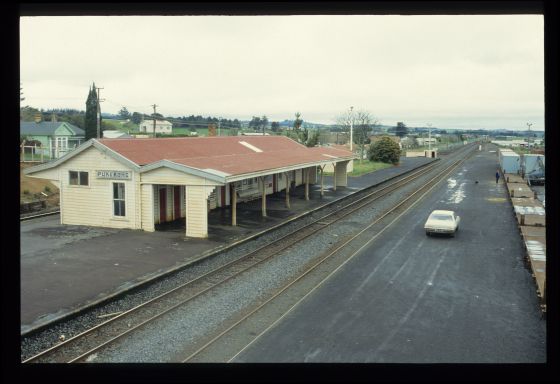
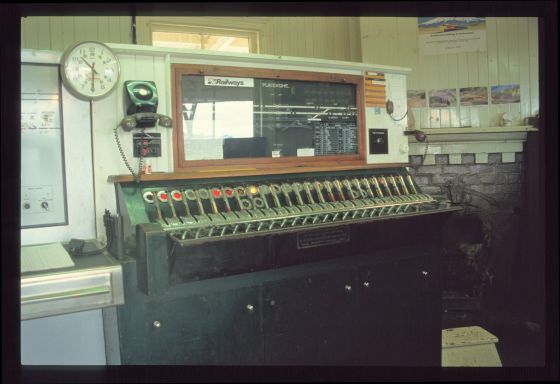
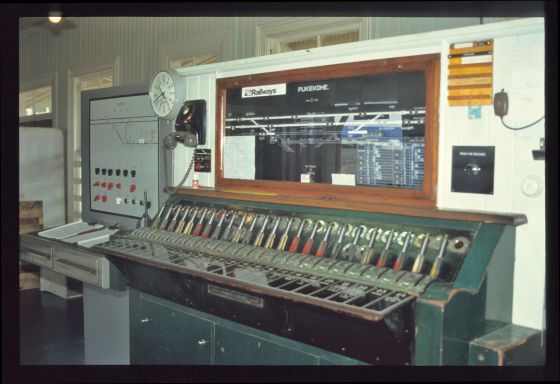
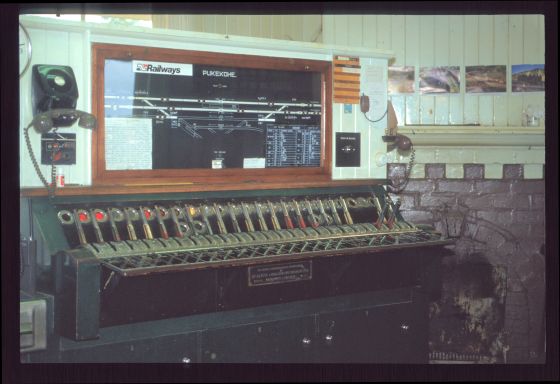
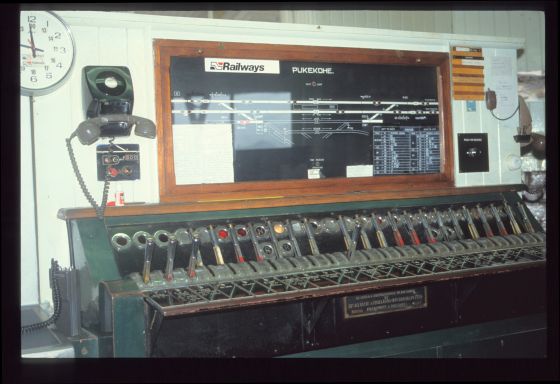
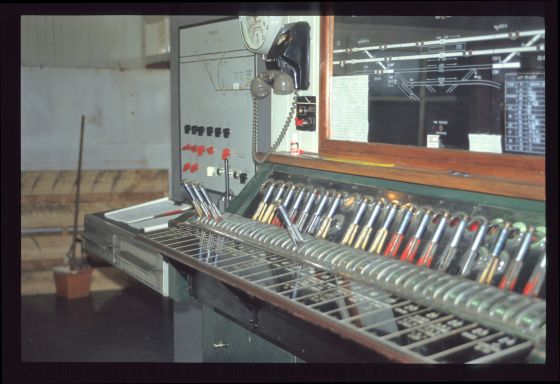

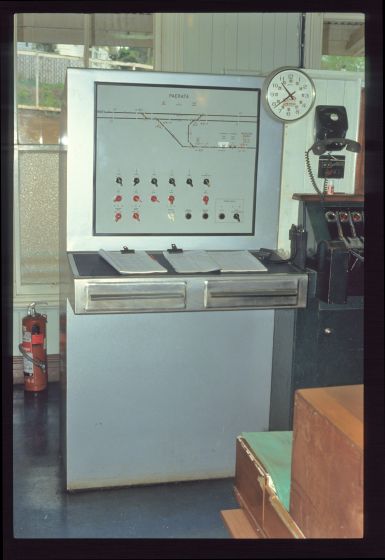
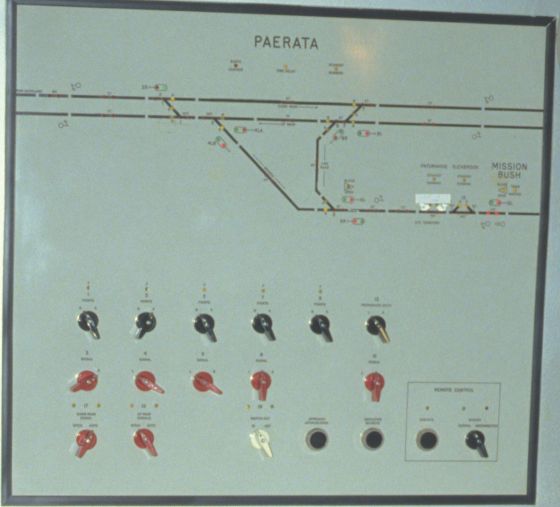
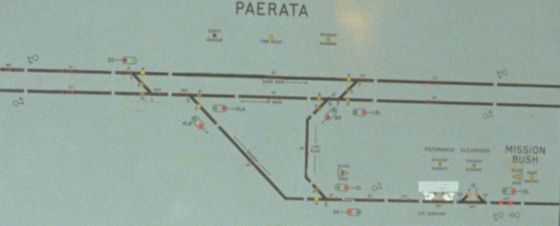
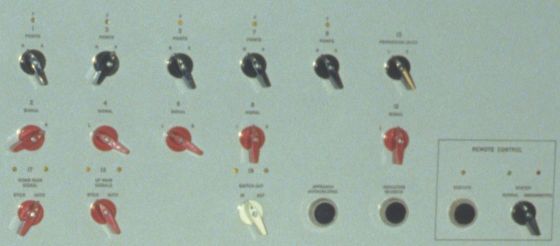
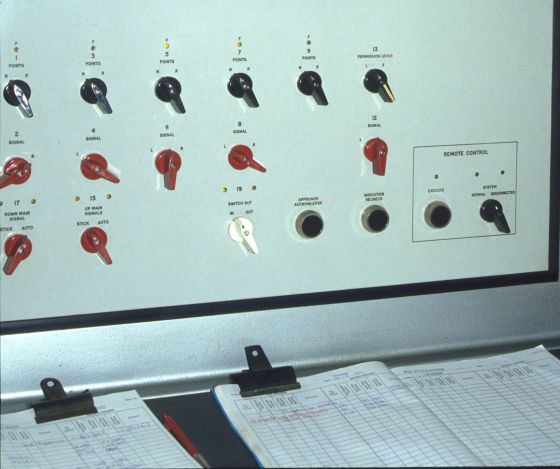
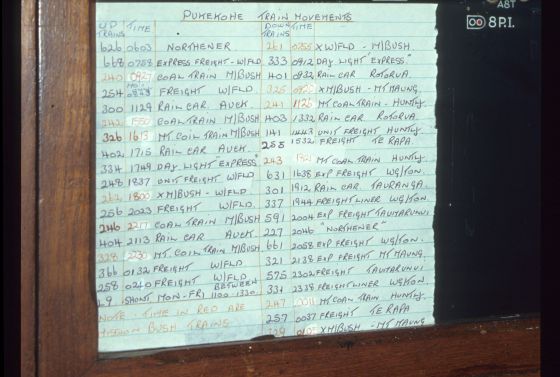
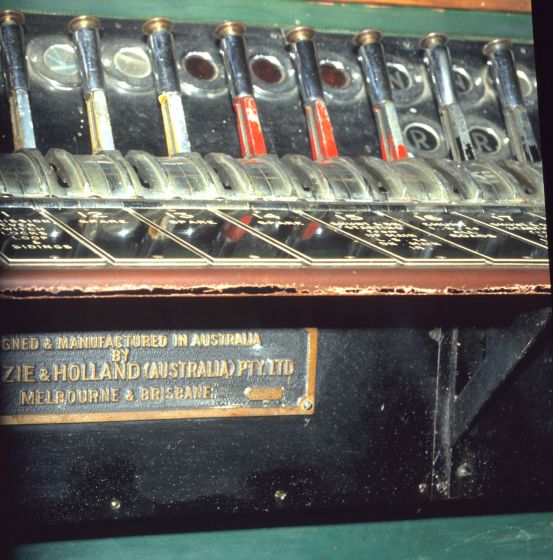
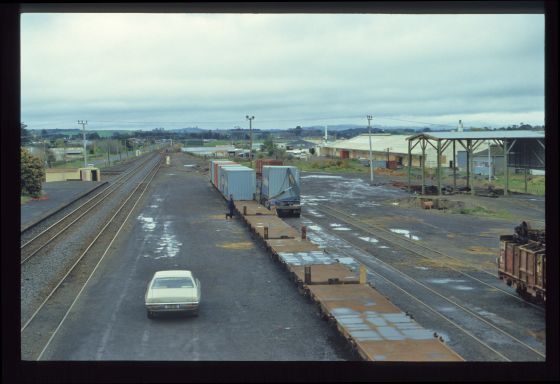
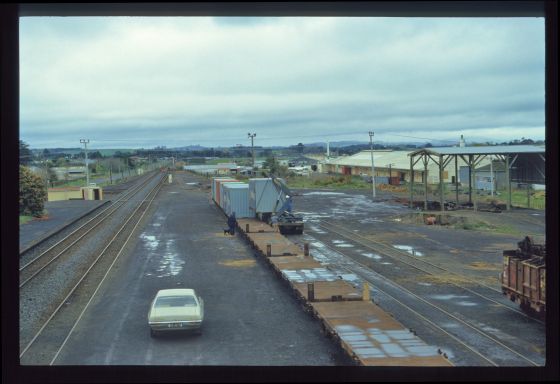
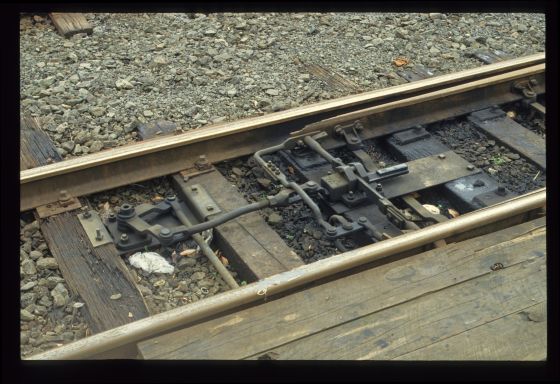
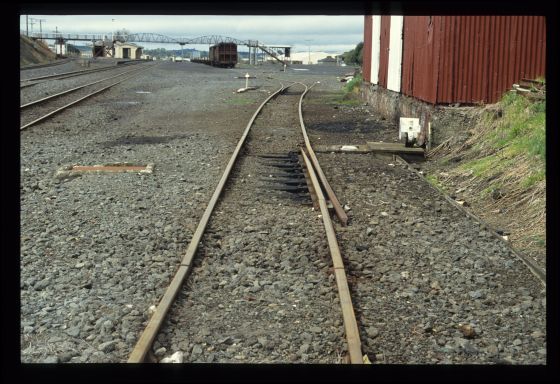
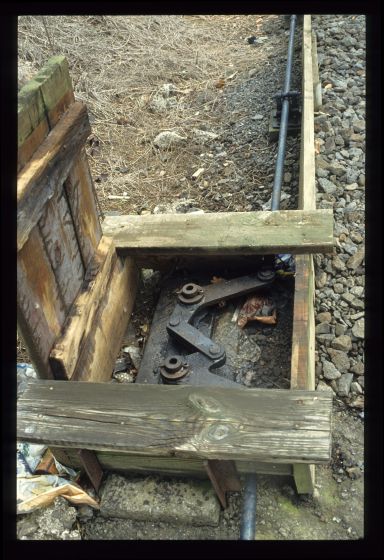
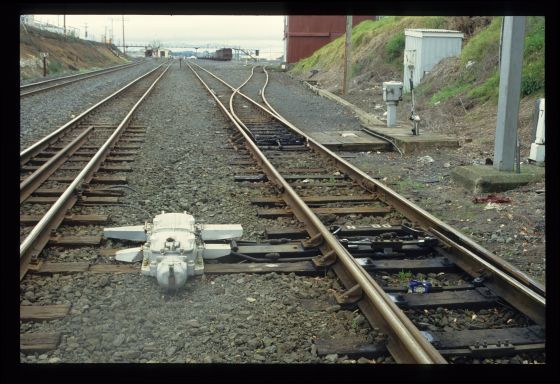
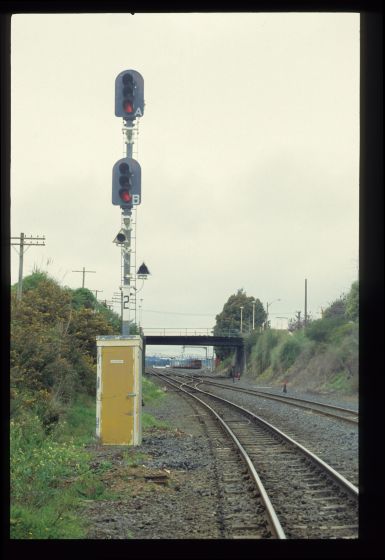
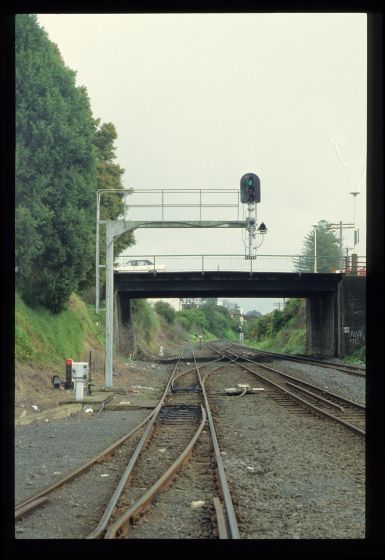
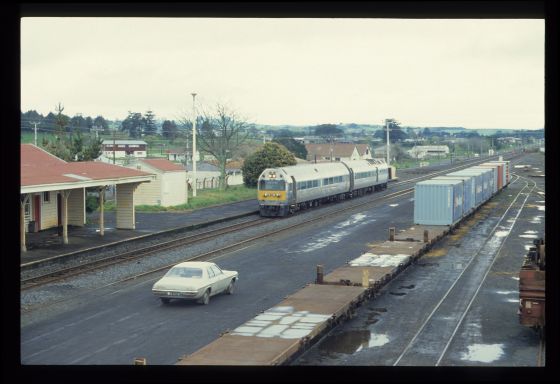
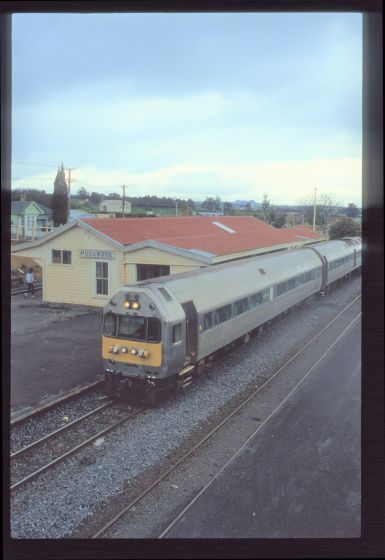
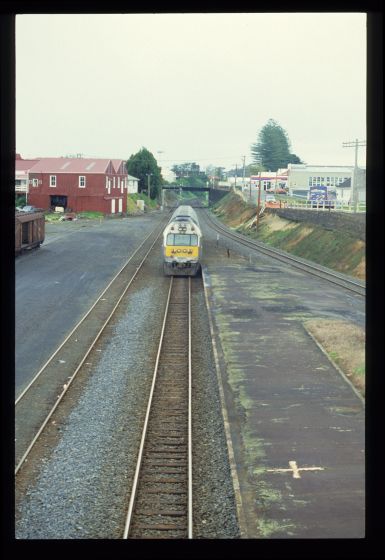
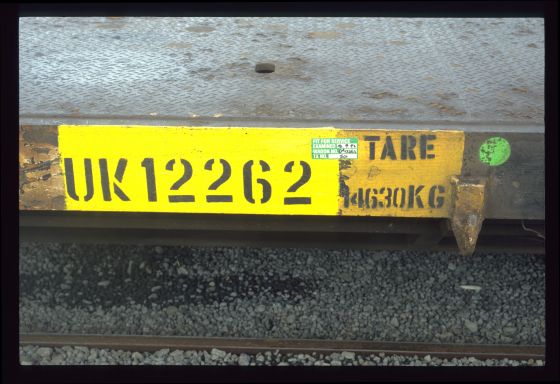
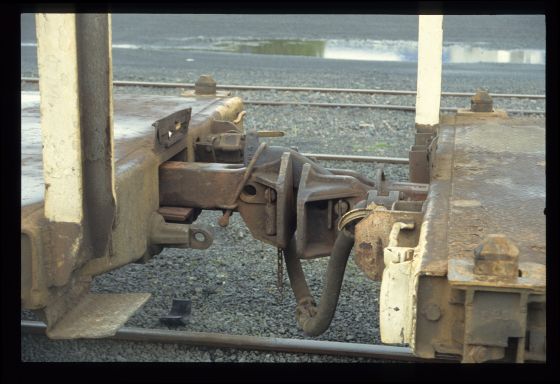
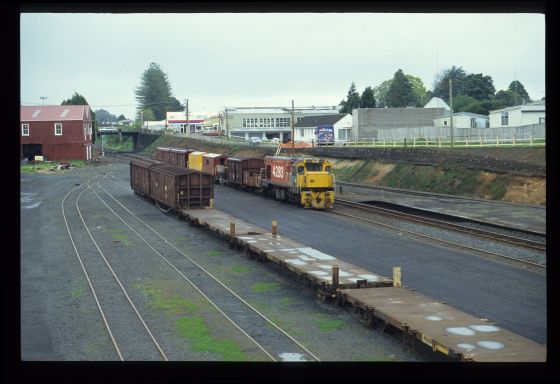
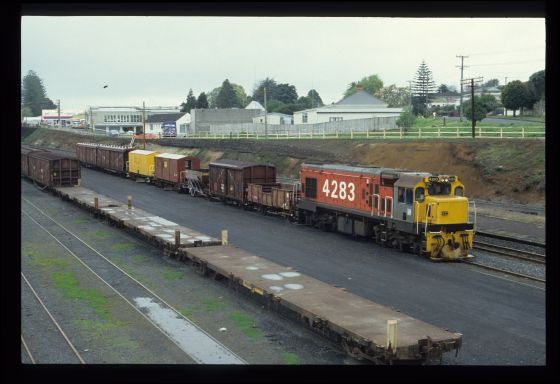
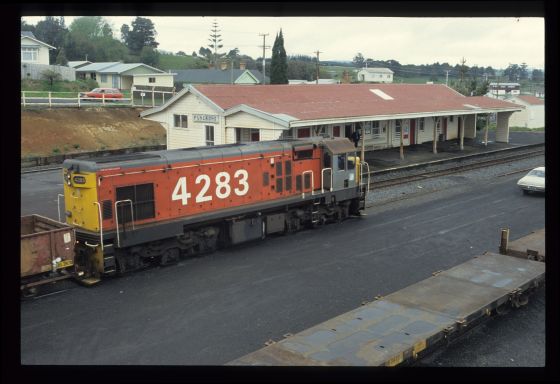
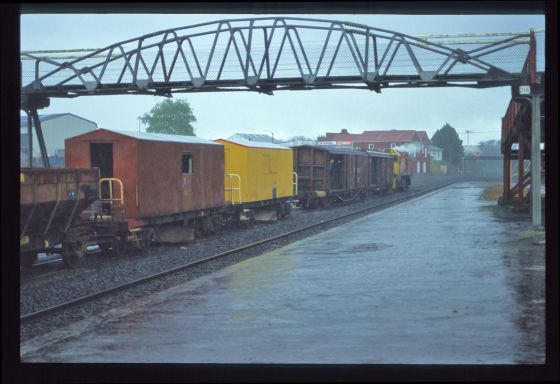
No comments:
Post a Comment